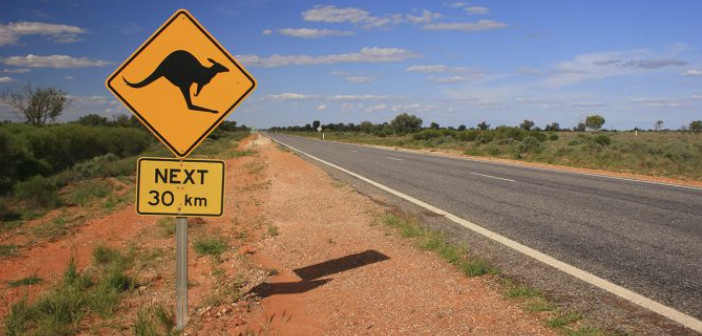Ireland & the Refugee Crisis | We Must Do Better
I checked in approximately 60 Iraqi refugees into a hostel in Perth, Western Australia while I was backpacking there four years ago. I was finishing a night shift at the hostel’s check-in desk when a frazzled looking lady from the Red Cross arrived in and told me she’d made a reservation for the legion of Middle Eastern men waiting outside in the car park. I desperately wanted to tell her that she’d missed check-in so that I could enjoy my usual routine of drinking wine from a bag, but instead I spent the next hour showing the seemingly endless line of asylum seeking Iraqis to their rooms. I’m not saying my sacrifice makes me a hero like the Irish navy who save countless people fleeing North Africa every year, as profiled in RTE’s The Crossing. That is for you to decide.
Mixing a group of non-English speaking men escaping persecution in war-torn Iraq with the existing hostel population of drunken construction workers and backpackers made for an unusual atmosphere. I’d like to think that the hostel manager accepted the booking on humanitarian grounds, but in reality I suspect it was a financial decision; the Red Cross paid up front and since the men didn’t drink they were unlikely to be any more trouble than the drunk Paddys or French stoners.

For two weeks the Iraqi men sat on one side of the hostel common room playing cards, while the backpackers sat drinking on the other. Both groups viewed the other with suspicion, though in reality they had much in common. While the Iraqis began their long and difficult process to claim asylum status, the backpackers largely were in the process of sourcing farm work for themselves, where they would work long hours and get attacked by snakes and dingos all in the hope of extending their visas. Australia is weird.[pullquote]One afternoon while chopping vegetables he noticed her walk into the kitchen, turned to her and with his blade still in hand said “Our countries are at war, isn’t that funny? Ha ha!”[/pullquote]
One man by the name of Bobby seemed keen to break from the Iraqi pack and integrate into the Western group, asking around for work and chatting up some of the girls. Unfortunately, chat-up lines were not his forte. He took a particular shine to a pretty, 21 year old American girl from Rhode Island; one afternoon while chopping vegetables he noticed her walk into the kitchen, turned to her and with his blade still in hand said “Our countries are at war, isn’t that funny? Ha ha!”
In the years since I left Australia the nation’s treatment of migrants has sadly gone from bad to worse, with the two leading political parties jostling to convince the public who is more committed to treating refugees horribly. Operation Sovereign Borders put military control over asylum operations, with the navy now intercepting migrant boats and dragging them back to where they came from. Where a boat reaches Australia successfully, the asylum seekers – or “Boat People” as they are known in Oz, a term used to casually dehumanise them – are then taken to offshore processing centres in Nauru or Papua New Guinea where they live in cramped, sweltering and unhygienic conditions and are told they will never be settled in Australia.

The process has been severely criticised by the UN and human rights groups, but such critiques have had little effect. Australia is one of the most prosperous countries in the world, and thousands of Irish people move there every year with dreams of a better life (or just to drink wine from a bag and fall asleep on toilets, in some instances). How does Irish treatment of refugees compare to the Lucky Country?[pullquote]Operation Sovereign Borders put military control over asylum operations, with the navy now intercepting migrant boats and dragging them back to where they came from.[/pullquote]
While we don’t use our Navy to intercept boats of migrants and deliver them back to the men they are trying to escape, or keep them in offshore ghettos, the reality is the Irish State could still do much better. Asylum seekers in Ireland are not allowed work, claim social welfare or avail of third level education. The system is generally considered to be damaging to not only their prospects in life, but also their health. 61 people have died in Irish direct provision centres between 2002 and 2014. Michael D. Higgins, President of Ireland and Chief Goblin of Gringotts Wizarding Bank, has been especially critical of the government’s failure to tackle the problem.
The debate around the issue, both here and abroad, seems to commonly come back to two questions; 1) how are we going to pay to look after all these people? and 2) Aren’t some of them criminals? As far as point 2 is concerned, the reality is that some of them probably are, but that doesn’t seem like a good enough reason to punish the vast majority who are ordinary people in a terribly vulnerable position.

A close friend of mine arrived into Ireland on the back of a lorry about twenty years ago when he was ten, and despite his fairly horrific experiences he is today a normal, happily adjusted member of Irish society. He has not to my knowledge ever been involved in any criminal activity, unless you count the time in college he called a Garda outside McDonalds a “stupid bogger” before legging in up Grafton Street towards the sanctuary of Coppers. Old habits.
Point 1) is a little trickier. It’s true that Ireland is still crawling its way out of the recession to end all recessions, and there’s still plenty of economic uncertainty still to come. Moreover, we’ve done a disgraceful job of looking after our own homeless population, never mind looking after those from other countries.
Alas, the sad truth is that if a financial institution needs bailing out, Ireland will do whatever it takes to find the money to help, even if it means humiliation, surrender of our sovereignty and years of gruelling austerity. But in the face of a humanitarian disaster on a scale not seen since the Second World War, our leaders are apparently quite happy to shrug and say the money to help simply isn’t there.
